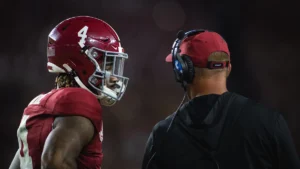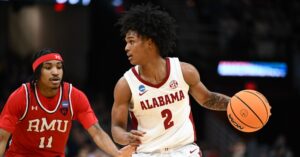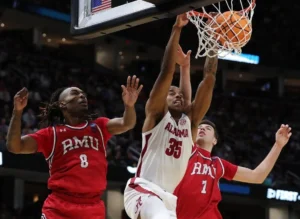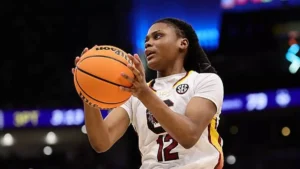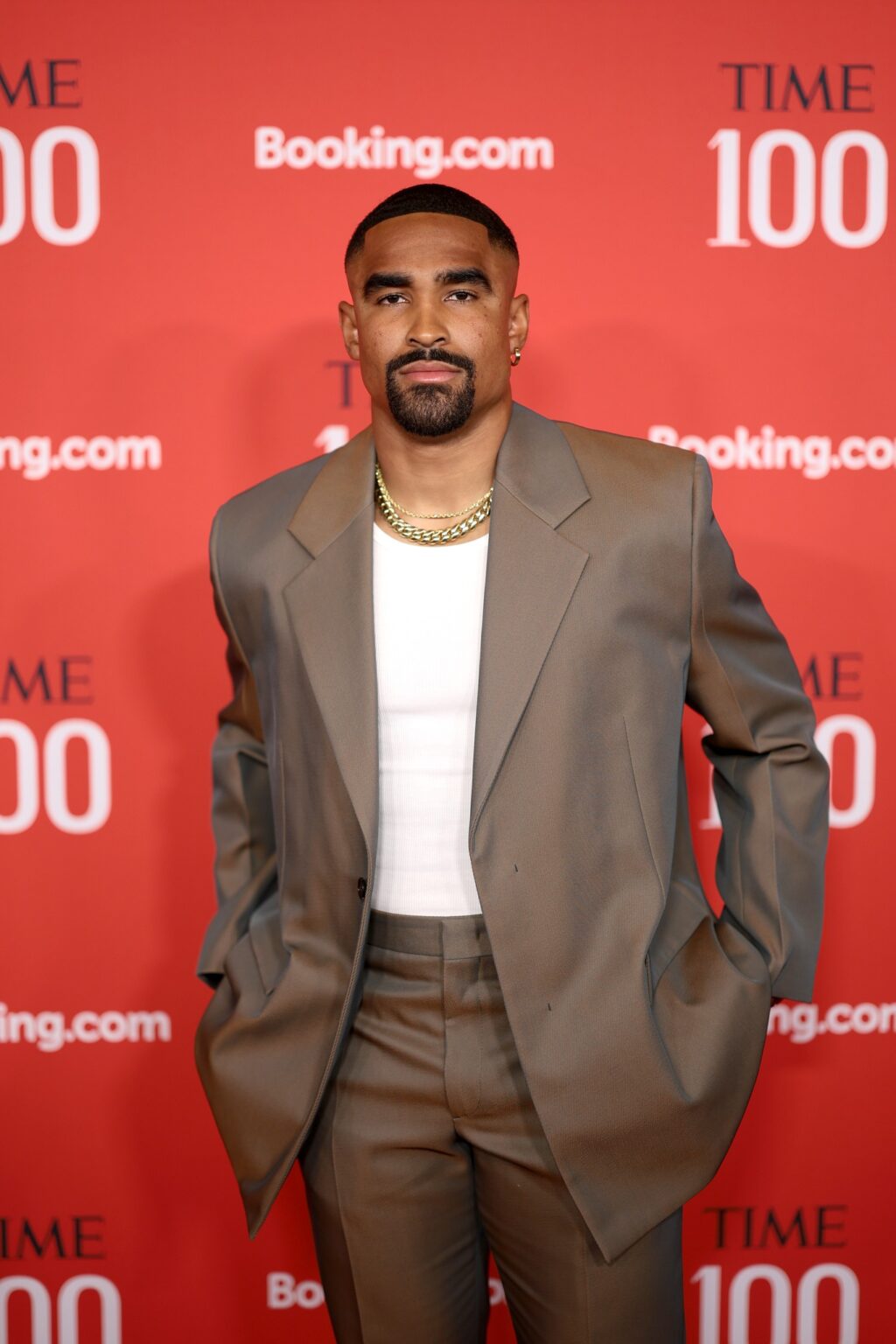
The Philadelphia Eagles quarterback Jalen Hurts has stated that he would not be visiting President Donald Trump at the White House today due to “scheduling conflicts.”
Philadelphia Eagles quarterback Jalen Hurts has declined an invitation to visit the White House today, citing “scheduling conflicts” as the reason for his absence from a traditionally symbolic gesture of sports excellence and civic pride. While such statements are often accepted at face value, Hurts’ decision has ignited a flurry of speculation, drawing attention to the growing intersection of sports, politics, and personal conviction.
For decades, championship teams in major American sports have visited the White House following their victories — a moment that merges athletic achievement with national recognition. Yet in recent years, especially during the Trump administration, these visits have become increasingly politicized. Some athletes have accepted the invite; others have declined for personal, political, or logistical reasons.
Hurts’ public statement was brief: “Due to scheduling conflicts, I will not be attending today’s White House visit. I wish my teammates well and thank the organization and fans for their continued support.”
On the surface, it’s a diplomatic message. However, given the broader context — especially the controversial nature of former President Donald Trump’s return to power in 2025 — many believe this to be more than a calendar mix-up.
Jalen Hurts has long walked a careful line when it comes to public statements on political or social issues. Unlike some of his peers who are more vocal activists, Hurts typically chooses his words with the poise and caution of someone acutely aware of the spotlight. Yet even in his measured tone, there are moments where his actions speak volumes.
In this case, critics and supporters alike are wondering whether the “scheduling conflict” explanation is a polite euphemism for personal protest. The timing of the decision — and the lack of specific alternate engagements announced — has left room for interpretation.
Former NFL quarterback and political commentator Robert Griffin III hinted at deeper motivations in a recent social media post: “When an NFL QB turns down the White House, it’s never *just* about the schedule. There’s meaning in the silence.”
According to multiple reports, the Philadelphia Eagles organization did not pressure players to attend the White House event, instead leaving the decision up to individual players. A handful of players and coaching staff did attend the ceremony, standing alongside President Trump as he congratulated the team on their 2024 NFC Championship and Super Bowl appearance — even though they fell short against the Kansas City Chiefs in a closely contested title game.
Eagles head coach Nick Sirianni addressed the situation with careful neutrality during a press conference: “We support our players’ individual choices. We understand that everyone has personal responsibilities and beliefs. Jalen is a tremendous leader for this team on and off the field.”
According to sources inside the team, the decision has not caused friction in the locker room. “We’re a family,” one veteran offensive lineman told reporters. “We don’t all think the same way about everything — politics included — but we respect each other.”
To fully understand the significance of Hurts’ decision, one must consider the broader landscape of modern athlete activism. The days of Michael Jordan’s apolitical approach — infamously summarized by the phrase “Republicans buy sneakers, too” — have largely given way to a new generation of athletes who view their platforms as instruments for societal influence.
Colin Kaepernick’s kneeling protest in 2016 served as a flashpoint. Since then, athletes across sports have spoken out on issues ranging from racial injustice and police reform to voting rights and immigration. The Trump presidency, in particular, became a backdrop for these conversations.
Several high-profile NBA players, including LeBron James and Stephen Curry, previously declined White House visits during Trump’s first term. The Golden State Warriors as a team refused the visit after winning the NBA Championship in 2017. Tom Brady famously skipped a 2017 visit with Trump despite their reported friendship, citing “personal family matters.”
Jalen Hurts is not the loudest voice in the room, but that doesn’t mean he lacks conviction. Throughout his college and NFL career, he has cultivated a brand rooted in discipline, leadership, and professionalism. Raised in a deeply religious and football-centric household, Hurts has often emphasized character and accountability. But he has also, from time to time, signaled alignment with social movements in subtle ways.
During the 2020 protests following the death of George Floyd, Hurts posted a black square on Instagram in solidarity. He has spoken about the importance of voting and equality but stops short of explicitly partisan commentary.
His decision to skip the White House visit aligns with that ethos: a quiet act, left open to interpretation. For supporters, it’s a show of dignity and restraint. For detractors, it’s seen as needlessly political or disrespectful.
Former President Trump’s return to the White House in 2025 has reignited old tensions with the NFL. His early years in office were marked by public spats with the league — particularly over players kneeling during the national anthem.
Trump frequently referred to such protests as disrespectful to the flag and military, at one point calling for NFL owners to “get that son of a bitch off the field” when players protested. These comments deepened the rift between the White House and many NFL players and coaches, several of whom viewed Trump’s rhetoric as racially charged and inflammatory.
Against that backdrop, every athlete’s decision to attend or not attend a White House event under Trump carries symbolic weight. It’s not merely about football anymore — it’s about what each presence or absence represents in a deeply divided America.
Hurts’ decision drew a mixed response from fans and commentators.
Fox Sports analyst Skip Bayless called the move “predictable and disappointing,” adding, “If every player starts skipping the White House over politics, we lose something that’s supposed to unite us.”
Meanwhile, ESPN’s Mina Kimes praised Hurts for staying true to himself: “He didn’t grandstand. He didn’t issue a manifesto. He made a quiet choice that reflects who he is. That takes a different kind of strength.”
Social media exploded with debate, with hashtags like #StandWithHurts and #Disrespectful making the rounds on X (formerly Twitter). Some users criticized Hurts for “snubbing the presidency,” while others viewed his absence as an act of courage.
Internally, the Eagles appear unfazed by the outside noise. Multiple teammates backed Hurts’ decision during media availability sessions.
Wide receiver A.J. Brown, a close friend of Hurts, told reporters, “We all support J. He’s our quarterback. He leads by example, and we know his heart.”
Even players who chose to attend the White House defended Hurts’ absence. Veteran center Jason Kelce said, “Everyone has different schedules, obligations, or even beliefs. That’s America. What matters is how we show up for each other on Sundays.”
The Eagles organization itself issued no formal comment beyond a standard press release celebrating the visit.
Hurts’ decision — and the conversation it sparked — is emblematic of a larger cultural shift. As sports continue to intersect with political and social issues, the expectation that athletes will participate in ceremonial traditions without scrutiny is waning.
In a time when every gesture is potentially politicized, silence can be as loud as speech. Hurts did not condemn, nor did he criticize. But he also didn’t attend.
It is this nuance that defines Jalen Hurts: a quarterback who leads with integrity, a man who speaks selectively, and whose choices often echo louder than his words.
To some, Hurts’ absence from the White House may seem like a footnote — just another busy athlete with an overflowing calendar. But for others, it’s a powerful moment of quiet resistance in a culture saturated with noise.
Whether it was truly a scheduling conflict or a statement masked in diplomacy, Hurts has — intentionally or not — joined a growing list of athletes who are reshaping what it means to stand at the intersection of sports, politics, and personal conviction.
As the 2025 NFL season looms, Hurts will likely face more questions about leadership and legacy. But for now, he’s made one thing clear: leadership isn’t always about showing up for the camera. Sometimes, it’s about knowing when not to.
